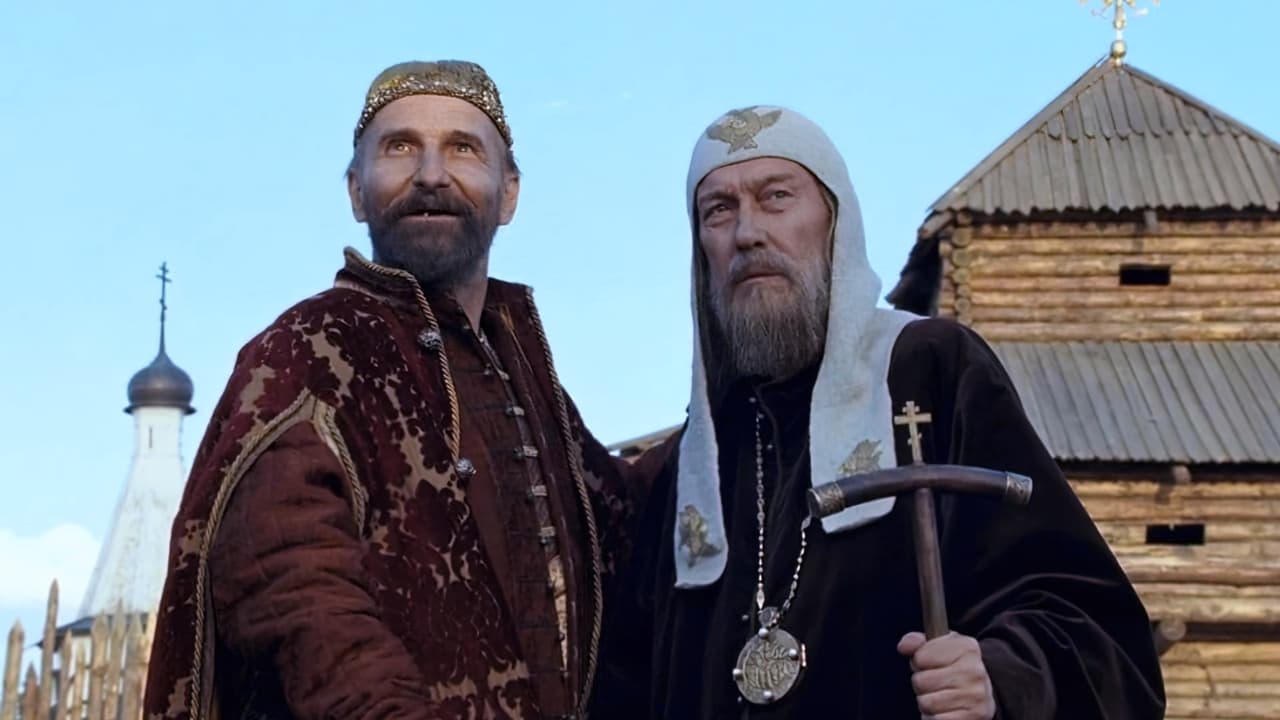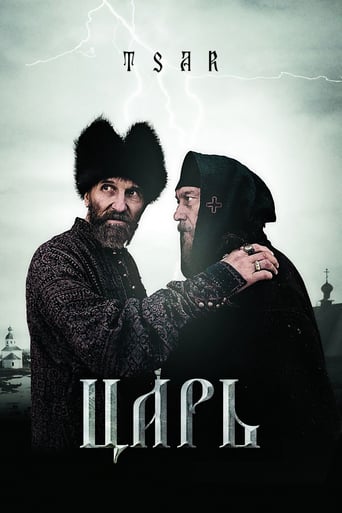Exoticalot
People are voting emotionally.
SpecialsTarget
Disturbing yet enthralling
Whitech
It is not only a funny movie, but it allows a great amount of joy for anyone who watches it.
Isbel
A terrific literary drama and character piece that shows how the process of creating art can be seen differently by those doing it and those looking at it from the outside.
clanciai
I agree completely with the author of "Sergei Eisenstein honored" in calling this film the third part of Eisenstein's intended trílogy of the most debatable of all Russian tzars. Eisenstein had planned a third film to his great "Ivan the Terrible" project but never came to fulfill it since already the second part was forbidden by Stalin, and Eisenstein died before Stalin. However, this film would have satisfied Eisenstein completely as a fulfillment of his last cinematic dreams.Of course, it has flaws. Pyotr Mamonov is not quite convincing as the tzar and does not stand up to a comparison with the incomparable Nikolai Cherkasov as the leading actor in Eisenstein's masterpieces. While Eisenstein's films are monumentally theatrical with every scene a masterpiece of composition and every face unforgettably impressive in pictorial portraiture, Mamonov as the tzar is too much of a caricature and is overdoing it in a grotesque way that falls out of the personage that the tzar really was. This twisted interpretation of the life on the throne is worsened by the revolting presence of the fool, who pushes the exaggerations far over the top of any credibility.All this grotesqueness, which really was part of Ivan's reign but only one side of it, is wonderfully balanced by Oleg Yankovsky as the metropolitan and childhood friend of Ivan, who the tzar desperately appeals to for friendship, which his ways make impossible. Here you have the full integrity of a real man who just can't compromise with his conscience and sense of right and wrong, while Ivan is way beyond any hope of insight in this matter. The metropolitan dominates the film, and the film is a masterpiece mainly because of him.Of course, there is very much you miss of Ivan's other aspects as a tzar. Neither Eisenstein nor Lungin included the episode of the slaughter of his son Ivan, and concentrating exclusively on the personal relationship between the tzar and the metropolitan, the film feels more episodic like a rhapsody than like an accomplished epic. There is certainly room in the future for a part IV of the complex, gigantic and humanly unfathomable story of the most debatable of Russian tzars.
Armand
Basic story. About power and faith. About power as expression of faith. About limits, fear and selfish. Impressive fragment of Russian history, it is, in fact, a parable. With wonderful cast and impressive images. Oleg Yankovskiy in his last role. Peter Mamonov as dark side of Father Anatoli from Ostrov. And the ambition of Pavel Lungin to say never death truth.Like a diamont, this movie has many faces. So, the first contact is only a sketch. Different impressions, heavey images, a new Mamonov, a short travel in history book to remind details about central character. Then, the waters are clear. The lights and the story , the dark isles and the splendid slices are nuances of same carpet. Ivan the Terrible is a fragile sinner built in self. And the gill, protect by Holy Virgin, the jester, the metropolitan, the hysterical wife - pieces of God presence in a desert without hope.
dbborroughs
Pavel Lungin's flawed power house film is more a film for the head for the heart-then again it grabs you by the throat and squeezes.Nominally the story of Tsar Ivan (the terrible) battling with his Metropolitan (head of the church). The film is a battle between vengeance and mercy, its an allegory between belief and certainty, a reflection of self vision and the vision of mankind, a look at the Stalin years in Russia, and the madness of rulers in general.Its a kick in the chest.More interested in making a point the film is more an essay or fantasia or poem rather then straight narrative. There is a plot, its just that some of the details are lost and people represent things more than are characters, the Jester is Satan, the little girl grace... There is graphic realism and yet there are miracles that seem both right and wildly out of place (the floating icon) I'm kicked to the curb and I know this one is going to haunt me for days.supposedly this won the Russian Oscar...Not for all tastes...but manna from heaven for those it clicks with
maqs
The plot of the movie covers a short term of the rule of the Russian Tsar Ivan the Terrible during one of the most controversial periods of Medieval Russia – Oprichnina. Many Russian aristocrats with whole families were put in disgrace, exiled and executed. Sigismund, the King of Poland, invaded western borders of the country, Novgorod the Great has risen against the Tsar. Being terrified by Oprichnina, old and week Metropolitan Afanasiy resigned and left Moscow. The Tsar, feeling lonely, rushing about his obsession of the forthcoming end of the world and Judgment Day, being on the verge of insanity called for the Solovetsky Monastery abbot Phillip Kolychev, his childhood friend. Phillip has moved to Moscow and against his will was appointed on the metropolitan see. Being shocked by the bloodthirstiness of Tsar's party, Phillip bravely tells Ivan the Terrible the truth. Wrathful Tsar put the metropolitan into disgrace, exiled him and later killed secretly, as well as Phillip's nephew and his fellow warlords for the false accusation of yielding up Polotsk to Sigismund.In my opinion this movie is more likely a simple narration without any deep moral message in it, being less successful work of Pavel Lungin then previous "Ostrov". Lungin made a colourful historical novel, though leaving an incompleteness of the plot, without evolving the drama to the logical completion.

